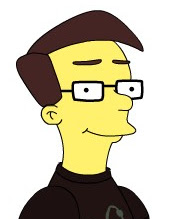 I'm not sure how I missed this, but the German composer Karlheinz Stockhausen, often called "the father of electronic music" died suddenly at his home in Kurten on 5 December.
I'm not sure how I missed this, but the German composer Karlheinz Stockhausen, often called "the father of electronic music" died suddenly at his home in Kurten on 5 December.While I'm not a big fan of electronic music, it is impossible to deny or overestimate the impact of Stockhausen's work on the music of the 20th century. He began composing in the 1950s, studying under such luminaries as Frank Martin, Darius Milhaud, and Olivier Messiaen. With such teachers, it seems to me almost predestined that he would produce something completely novel. His composition Gesang der Jünglinge (1955-56) has been called the first electronic masterpiece and over the next forty years Stockhausen's output continued to be innovative and influential. At the time of his death, he was looking forward to a complete production later this year of Licht, a monumental cycle of seven operas dealing with "traits associated in various historical traditions with each weekday" (according to Wikipedia).
Stockhausen was the creator of an organization founded to advance his creative ideals which will carry on the work he began almost 60 years ago. Alex Ross discusses the composer and his impact here. One of Stockhausen's students attended the memorial service in Kurten and provides some thoughts here.




No comments:
Post a Comment